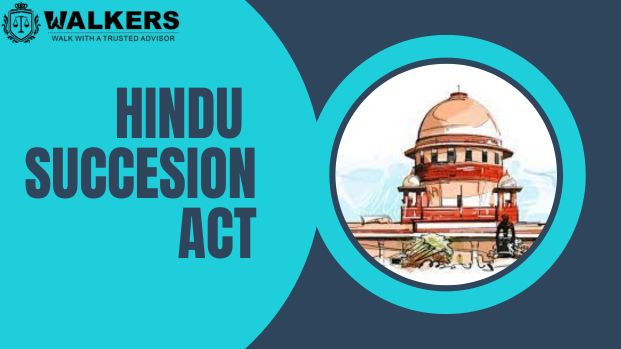


In a recent ruling, the Supreme Court has stated that in the midst of a partition lawsuit, the involved parties can avail the advantages of the updated law, provided that the final verdict has not been announced yet. Therefore, during the final decree process of a partition lawsuit, modifications can be made to the preliminary decree, if the governing law applicable to the concerned parties has undergone any amendments.
According to a recent ruling by the Bench of Justice A.S. Bopanna and Justice J.B. Pardiwala, in a joint property partition lawsuit, a decree settled by agreement among only a few parties cannot be upheld. In order for the settlement to be legally valid, it must contain the written consent and signatures of all parties involved, as observed in the case of Prasanta Kumar Sahoo & Ors. v Charulata Sahu & Ors.
Facts:
The case involves the demise of Mr. Kumar Sahoo in 1969 and his three children - Ms. Charulata (daughter), Ms. Santilata (daughter) and Mr. Prafulla (son) - who survived him.
Ms. Charulata initiated a partition lawsuit on 03.12.1980, claiming a 1/3rd share in the ancestral and self-acquired assets of her late father.
After due proceedings, the Trial Court passed a preliminary decree on 30.12.1986, stating that Ms. Charulata and Ms. Santilata were entitled to a 1/6th share in the ancestral properties and 1/3rd share in the self-acquired properties of Mr. Sahoo. The Trial Court also ruled that the daughters were eligible for mesne profits. However, in the case of Mr. Prafulla, he was entitled to a 4/6th share in the ancestral properties and 1/3rd share in the self-acquired properties of Mr. Sahoo, along with the mesne profits.
After the Trial Court's decision, Mr. Prafulla was dissatisfied and decided to appeal the decision before the High Court. He argued that all of Mr. Sahoo's properties were ancestral in nature. During the appeal, Mr. Prafulla and Ms. Santilata entered into a Settlement Deed on 28.03.1991, whereby Ms. Santilata gave up her share in favor of Mr. Prafulla in exchange for a payment of Rs. 50,000/-.
Mr. Prafulla continued to litigate before the High Court regarding whether certain properties, which were the subject of the partition lawsuit, were ancestral or self-acquired by his father. Meanwhile, Ms. Charulata filed a parallel appeal, challenging the legality of the Settlement Deed dated 28.03.1991, executed between her brother and sister.
Following the Trial Court's decision, Mr. Prafulla appealed to the High Court claiming that all properties of Mr. Sahoo were ancestral. During the appeal, Mr. Prafulla and Ms. Santilata entered into a Settlement Deed on 28.03.1991, where Ms. Santilata relinquished her share to Mr. Prafulla for Rs. 50,000/-. However, the High Court Division Bench dismissed Mr. Prafulla's appeal on 05.05.2011 and invalidated the Settlement Deed between Mr. Prafulla and Ms. Santilata.
Subsequently, Mr. Prafulla filed an appeal to the Supreme Court against the Order dated 05.05.2011. The argument made was that the 2005 amendments to the Hindu Succession Act, 1956, which granted daughters equal co-parcener rights as sons, could not be applied after such a long time. Moreover, it was argued that Ms. Santilata's rights were extinguished and transferred to Mr. Prafulla by virtue of the Settlement Deed.
Supreme Court Verdict:
In a recent case titled Prasanta Kumar Sahoo & Ors. v Charulata Sahu & Ors., the Supreme Court has held that during the pendency of a partition suit or between the passing of preliminary decree and final decree, any legislative amendment or subsequent event which results in enlargement, diminution or alteration in the share/rights of the parties, can be taken into consideration while passing the final decree. The Court referred to the Vineeta Sharma v. Rakesh Sharma and Ors. case wherein it was held that the amended Section 6 of the Hindu Succession Act, 1956, which gave coparcenary rights to daughters w.e.f. 09.09.2005, would also be applicable to cases where the male coparcener dies prior to the amendment in 2005.
The Court also observed that settlement deeds in a partition suit must include the written consent and signature of 'all' parties. It relied on Order XXIII Rule 3 of the Civil Procedure Code, 1908, which states that when a claim in a suit has been adjusted wholly or in part by any lawful agreement or compromise, the compromise must be in writing and signed by the parties. In a suit for partition of joint property, a decree by consent amongst only some of the parties cannot be maintained.
The Court upheld the allocation of shares done by the Trial Court and the High Court and redetermined the shares of the parties. The Preliminary Decree of the Trial Court has been modified to the extent that the daughters are entitled to 1/3rd share in all the properties i.e. ancestral and self-acquired properties of Late Kumar Sahoo. The Settlement Deed has been invalidated, and Mr. Prafulla cannot claim the share of Ms. Santilata.
The appellants were represented by Senior Advocate Mr. R Basant, while Advocate Ms. B. Sunita Rao appeared for the respondents.
Click Here to: Download/View Related File
TAGS: Supreme Court partition suit Hindu Succession Act 1956 amendment Vineeta Sharma v. Rakesh Sharma coparcenary rights daughters preliminary decree final decree Settlement Deed written consent joint property share.